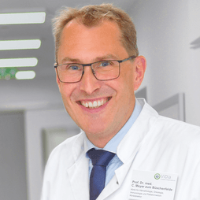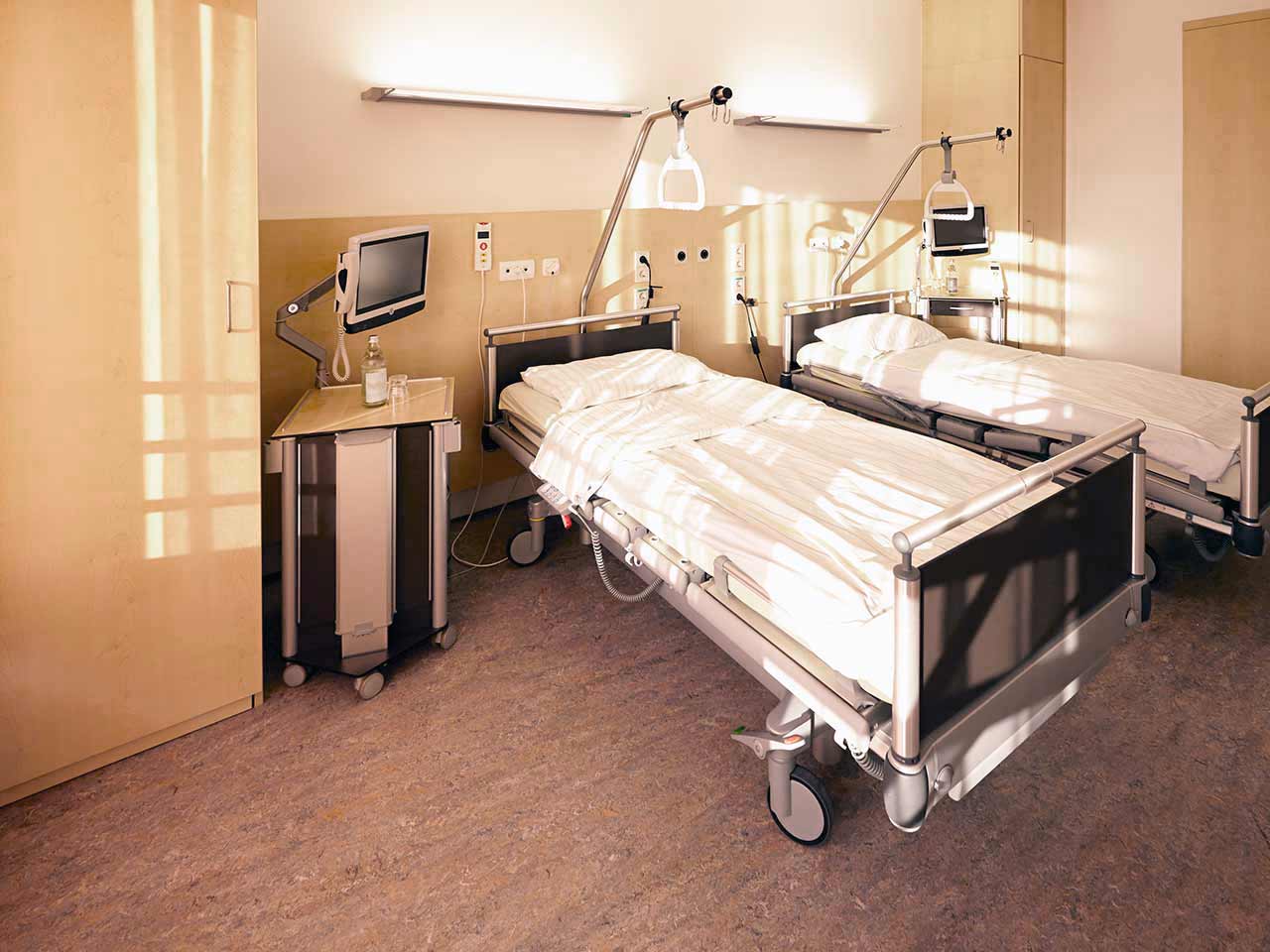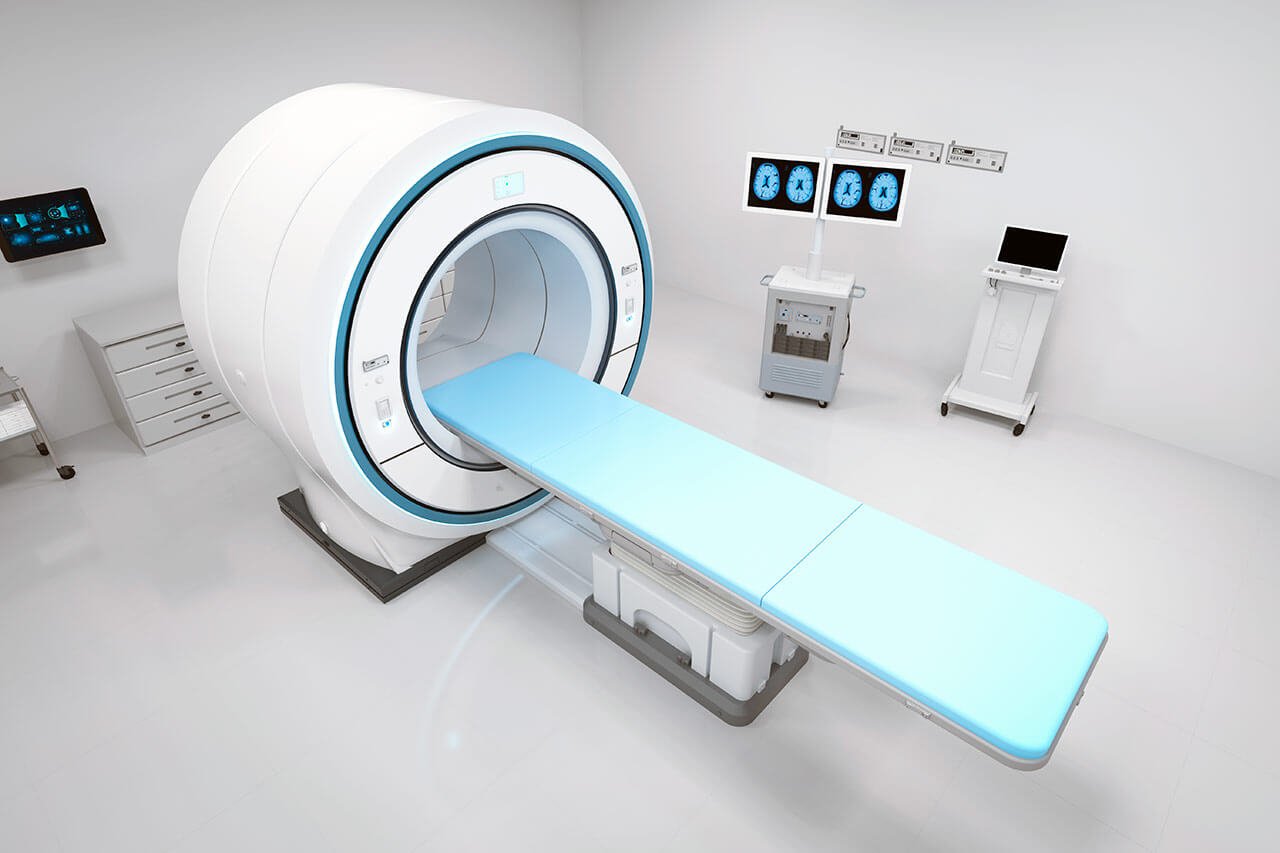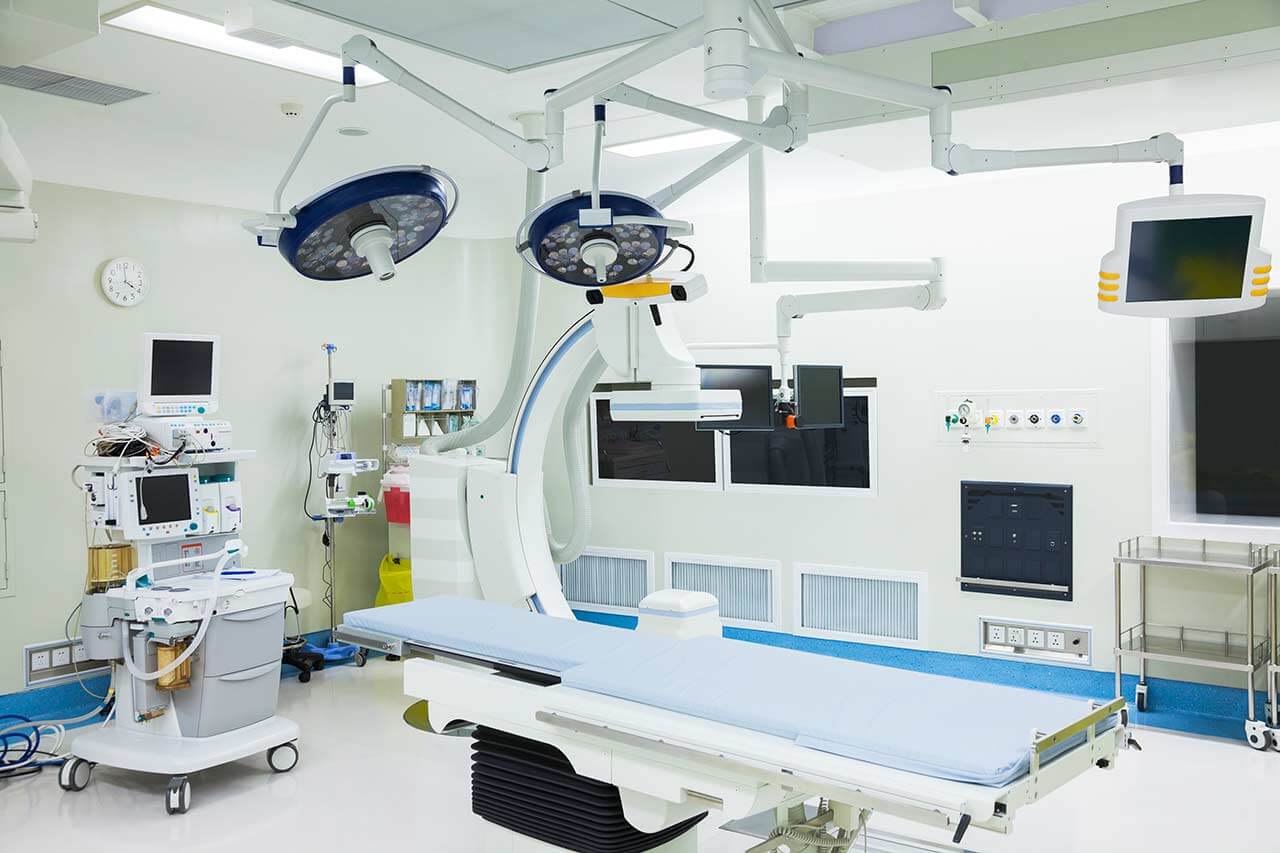
The program includes:
- Initial presentation in the clinic
- clinical history taking
- review of medical records
- physical examination
- laboratory tests:
- complete blood count
- biochemical analysis of blood
- TSH-basal, fT3, fT4
- tumor markers (AFP, CEA, СА-19-9, CA 72-4)
- inflammation indicators (CRP, ESR)
- indicators of blood coagulation
- abdominal ultrasound scan
- 1 course of chemotherapy according to the individual plan
(the cost of medicines is included) - nursing services
- consultations of related specialists (tumor board)
- treatment by head physician and leading experts
- explanation of individual treatment plan
How program is carried out
During the first visit, the doctor will conduct a clinical examination and go through the results of previous laboratory tests and instrumental examinations. After that, you will undergo an additional examination, including laboratory assessment of liver and kidney function, ultrasound scan. Based on the received results, the doctor will elaborate the chemotherapy regimen. If necessary, related medical specialists will be involved in the elaboration of a treatment regimen (tumor board).
Chemotherapy is carried out as the day hospital procedure, without mandatory admission to the hospital. After the placement of a venous catheter, you will stay in a comfortable ward. An infusion system will be connected to the catheter, through which the required drug or a drug combination will be administered. All drugs are administered by intravenous drip, slowly, so the total duration of the infusion can be up to several hours. All this time, doctors and nurses will monitor your health condition closely.
After the course of chemotherapy, you will stay under medical supervision in the ward for a few more hours. If your general condition is good, your doctor will allow you to leave the hospital. You will receive the medical report with detailed recommendations regarding further treatment. In the future, you will be able to have a distant consultation with your attending physician and schedule the next course of chemotherapy, if necessary.
Required documents
- Medical records
- Esophagogastroduodenoscopy (EGD), MRI/CT scan (not older than 3 months)
- Biopsy results (if available)
Service
You may also book:
 BookingHealth Price from:
BookingHealth Price from:
About the department
The Department of Hematology and Oncology at the ViDia Hospital Karlsruhe treats solid malignant tumors of various localizations, blood cancer, and benign hematopoietic pathologies. A qualified team consisting of oncologists, hematologists, psycho-oncologists, physiotherapists, and experienced nursing staff takes care of the health of patients. Whenever required, doctors from related medical fields are also involved in the therapeutic process. All specialists make every effort to provide patients with effective and personalized medical services while surrounding them with care. The department is part of the Cancer Center of the hospital, which is certified according to the requirements of the German Cancer Society (DKG). The department prefers a multidisciplinary approach, holding weekly tumor boards with the participation of oncologists, hematologists, radiation therapists, and surgeons, as well as highly specialized experts in gynecology, urology, gastroenterology, pulmonology, etc. The department's specialists have in their arsenal modern treatment methods for malignant diseases, including chemotherapy, targeted therapy, immunotherapy, hormone therapy, and many others. Patients with advanced stages of cancer are offered palliative care aimed at alleviating pain syndrome and ensuring a decent quality of life. The department is headed by Prof. Dr. med. Christian Meyer zum Büschenfelde.
In the field of hematology, the primary focus is on the treatment of malignant diseases, such as acute leukemias, lymphomas, and multiple myeloma. Acute leukemia is a malignant disease of the hematopoietic system primarily localized in the bone marrow. Cancer develops rapidly, causing fatigue, severe weakness, fever, shortness of breath, and hemorrhages. The key diagnostic methods for acute leukemia include a complete blood count, including the biochemical profile, and bone marrow puncture and biopsy with follow-up histological examination of the obtained biological material. Should the diagnosis be confirmed, doctors immediately begin to elaborate an optimal treatment regimen, which is most often based on chemotherapy. Depending on the particular clinical case, treatment may also include targeted therapy, radiation therapy, and immunotherapy. In the most complex cases of acute leukemia, a bone marrow transplant is the only effective method of curing the cancer.
The department has also gained vast experience in providing medical care to patients with Hodgkin's and non-Hodgkin's lymphomas, including multiple myeloma. These malignancies affect the lymphatic system of the human body. The signs of lymphomas may include painless enlargement of lymph nodes in the neck, armpits, or groin, general weakness, rapid fatigue, unexplained fever, and weight loss. During the diagnostic stage, blood tests, a lymph node biopsy followed by histological examination, a bone marrow puncture, etc. are prescribed for patients. If diagnostic results confirm the presence of lymphoma, the treatment planning phase begins. In the early stages of the disease, the department's doctors often use only chemotherapy, and in advanced cases of cancer, additional procedures such as targeted therapy, immunotherapy, and radiation therapy may be prescribed.
The department's team of oncologists regularly admits patients with colon cancer. This type of cancer is the second most common oncopathology among men and women worldwide. The insidiousness of colon cancer is that in the early stages, when the pathology responds well to treatment, it is asymptomatic, so the patient may not even guess about the presence of a colon tumor for years. If specialists manage to detect the disease in its early stages, it can often be cured via surgical resection and, in some cases, using an endoscopic procedure. If colon cancer has reached its advanced stages, the patient will have to undergo ultrasound, CT, and/or MRI scanning to assess the spread of the cancer process and prescribe the most effective treatment. In the advanced stages of colon cancer, extensive resections are often performed, including the removal of adjacent tissues. Chemotherapy is an integral part of the therapeutic process in such cases. The department's specialists also widely use localized treatment methods for targeted effects on the malignant tumor and/or metastases. These include radiofrequency ablation, transarterial chemoembolization, and stereotactic radiation therapy.
In cooperation with gynecologists, the department's oncologists provide care to women with cancer of the reproductive system, including cervical cancer, uterine cancer, ovarian cancer, vulvar cancer, and vaginal cancer. For patients with such cancers, the first-line treatment is most often a surgical intervention, during which tumor resection or removal of the affected organ with adjacent tissues is performed, depending on the cancer's spread. Surgery is usually complemented by chemotherapy and/or radiation therapy.
The department specializes in the diagnostics and treatment of the following diseases:
- Hematology
- Malignant hematopoietic diseases
- Acute leukemia
- Hodgkin's and non-Hodgkin's lymphomas
- Multiple myeloma
- Benign hematopoietic diseases
- Anemia
- Hemophilia
- Thrombocytopenia
- Myelodysplastic syndrome
- Blood clotting disorders
- Malignant hematopoietic diseases
- Oncology
- Colon cancer
- Stomach cancer
- Pancreatic cancer
- Lung cancer
- Female reproductive system cancers
- Uterine cancer
- Cervical cancer
- Ovarian cancer
- Vaginal cancer
- Vulvar cancer
- Male reproductive system cancers
- Prostate cancer
- Germ cell testicular tumors
- Urinary tract cancers
- Kidney cancer
- Bladder cancer
- Ureteral cancer
- Other diseases
The department's therapeutic options include:
- Chemotherapy
- Targeted therapy
- Immunotherapy
- Hormone therapy
- Monoclonal antibody therapy
- Palliative care
- Other treatment methods
Curriculum vitae
Higher Education and Professional Career
- 1988 - 1990 Medical studies, Christian Albrecht University of Kiel.
- 1990 - 1994 Medical studies, Johannes Gutenberg University Mainz.
- October 1994 Admission to medical practice.
- 1994 - 1996 Resident Physician (specialization: immunology and microbiology), Bernhard Nocht Institute for Tropical Medicine in Hamburg.
- 1996 - 1997 Assistant Physician (specialization: immunology and microbiology), Bernhard Nocht Institute for Tropical Medicine in Hamburg.
- 1997 - 2001 Assistant Physician, Department of Hematology and Oncology, University Hospital Rechts der Isar Munich.
- 2001 - 2003 Research Fellow, Yale University, New Haven, USA.
- 2003 - 2006 Assistant Physician, Department of Hematology and Oncology, University Hospital Rechts der Isar Munich.
- November 2005 Board certification in Internal Medicine.
- December 2005 Habilitation, Technical University of Munich.
- 2007 - 2008 and 2010 Attending Physician, Department of Hematology and Oncology, University Hospital Rechts der Isar Munich.
- 2008 Certification by the European Society for Medical Oncology (ESMO).
- November 2009 Board certification in Hematology and Oncology.
- September 2010 - March 2017 Attending Physician, Department of Hematology and Oncology, Asklepios Hospital Altona in Hamburg.
- March 2012 Extraordinary Professorship, Technical University of Munich.
- 2013 and 2018 Repeated certification by the European Society for Medical Oncology (ESMO).
- September 2016 Specialization in Palliative Care.
- 2017 Study of Good Clinical Practice Guidelines (ICH GCP).
- Since April 2017 Head Physician, Department of Hematology and Oncology, ViDia Hospital Karlsruhe.
Photo of the doctor: (c) ViDia Kliniken Karlsruhe
About hospital
The ViDia Hospital Karlsruhe is a modern medical facility with a rich history and traditions. The medical complex is an academic hospital of the University of Freiburg, granting patients access to advanced university medicine and the very latest therapeutic developments. The hospital first opened its doors in 1851 and, since then, has maintained a leading position in the European medical arena. The health facility offers a state-of-the-art technical base, comfortable infrastructure, and highly qualified doctors. All this allows the hospital to provide patients with top-class healthcare in accordance with modern standards. In addition, the hospital's team honors Christian traditions, emphasizing a humane attitude towards the patient and striving to provide understanding and support.
The hospital employs a large team of specialists, consisting of over 3,200 staff members, including 400 highly qualified physicians. The medical team admits more than 50,000 inpatients every year, and about 100,000 patients are diagnosed and treated on an outpatient basis or in a day hospital. More than 3,000 babies are born in the maternity rooms of the Department of Obstetrics every year. More and more patients, including those from abroad, come to the hospital for medical care annually.
The hospital has 24 specialized departments with 25 highly certified, narrowly focused centers integrated into them. A large Cancer Center certified according to the German Cancer Society (DKG) standards also operates here. Thus, one of the main clinical focuses of the medical complex is cancer treatment. The hospital also excels in other specialties, such as general surgery, abdominal surgery, thoracic surgery, orthopedics, cardiology, endocrinology, otolaryngology, pulmonology, gastroenterology, and others. There are 37 operating rooms available here for surgical treatment, the equipment of which corresponds to the highest technical level. Priority is given to performing minimally traumatic operations using minimally invasive, endoscopic, arthroscopic, and endovascular techniques.
The ViDia Hospital Karlsruhe enjoys a high reputation in Germany and far beyond its borders. The health facility successfully combines innovative medicine with Christian values, thanks to which the patient receives not only effective treatment but also care, understanding, and support.
Photo: (с) depositphotos
Accommodation in hospital
Patients rooms
The patients of the ViDia Hospital Karlsruhe stay in comfortable single and double rooms with modern design. Each patient room has an ensuite bathroom with a shower and a toilet. The standard room furnishings include an automatically adjustable bed, a bedside table, a table and chairs, a wardrobe, a telephone, a TV, and a radio. Wi-Fi access is also available in the patient rooms.
Patients can also be accommodated in enhanced comfort rooms. These rooms are very spacious and are additionally equipped with a safe, a mini-fridge, and upholstered furniture.
Meals and Menus
The patients of the hospital are offered three tasty meals a day: breakfast is served buffet-style, and there are several set menus to choose from for lunch and dinner.
If, for some reason, you do not eat all of the foods, you will be offered an individual menu. Please inform the medical staff about your dietary preferences prior to treatment.
Further details
Standard rooms include:
![]() Toilet
Toilet
![]() Shower
Shower
![]() Wi-Fi
Wi-Fi
![]() TV
TV
Religion
There are several chapels on the territory of the hospital. Regular Catholic and evangelical services are held here. Patients can also visit one of the chapels at any time to find a quiet place to pray, if desired.
Accompanying person
Your accompanying person may stay with you in your patient room or at the hotel of your choice during the inpatient program.
Hotel
You may stay at the hotel of your choice during the outpatient program. Our managers will support you for selecting the best option.





